A few months ago, I was given an opportunity to go to Haiti on a mission trip. I have to say a huge THANK YOU to everyone who helped me cover the expenses of the trip, and a double thank you for everyone who supported us in prayer while we were there. This was the second time for me to go there and I am truly privileged to witness God bring a change in that region that I expect to see spread throughout the nation.
Our team left at the beginning of January, the middle of winter in Missouri. In Haiti we were confronted with 80-degree-plus temperatures (one day it hit upper-90s). In Miami, we had a 7-hour layover overnight during which little sleep was to be had by anyone. We arrived at the airport in Port-au-Prince, Haiti the next day and were picked up by some of the workers from the orphanage where we stayed. It took several hours to actually get to the orphanage, located near the city of Petit Guave, so it was a hard trip for us, but dinner was almost ready when we arrived.
The hospitality of everyone at the orphanage is amazing. The kids moved out of their rooms so that we would have a comfortable place to stay, they prepared meals and served us, they made popcorn in the evenings, and always watched out to make sure we were safe. But even better than those things, they really enjoyed being around us. We played games together and had a lot of fun even though communication was a little challenging at times. We played soccer a few times, which is amazing since these kids are really good, but play without shoes because they don't have any.
The language of Haiti is Creole, a mixture of French, Spanish, and English. Most of the kids we were around are learning English in school. Education is a privilege in Haiti. Haiti is the poorest country in the Western Hemisphere, and education is not state-sponsored. Parents have to pay for their kids to attend school, an expense that many just are not able to afford. The orphanage pays for kids to get to go to school (and not only for the ones who live there).
Malnutrition is a major problem in Haiti, and especially in this area. At school, the kids are provided with a meal three times a week and for some, this is all they eat in a week. When school is not in session, the orphanage has a feeding program to provide meals for the kids. Less than 100 kids' names are on a list to be able to receive these meals. There are many hundreds in this area, but funding is not available to care for all of them. At a feeding session that we were able to help at, one of the students in our group spoke through a translator and about 50 kids raised their hands to accept Jesus. This just illustrates that by ministering to physical needs, God can open doors to meet spiritual needs.
Another service to the community that we were able to do was a minor medical clinic. We both brought and purchased medical supplies for pain, stomach problems, dehydration, sanitation, and worms. For two days, a few hours each day, we both treated people who came to the clinic, providing them with several days' worth of medication, and prayed for them, too. Everyone who received prayer was asked the question: "Do you know Jesus?" If they did not, we asked if they would like to accept Jesus as their savior. About a dozen people said "yes."
We did services at three nearby churches. A Methodist church located only a few hundred yards from the orphanage that we had been to in my previous trip, and two new ones that none of us had been seen before. In all three places, God moved in a powerful way. Worship was intense, testimonies and the message were in line, and the altar call resulted in changed lives. Every service, several of us were scheduled to testify. No one discussed what they were going to testify about ahead of time, but they all fit together perfectly. The Methodist church is the most traditional, closely modeling an American church service style. We were told that they rarely gave altar calls and people didn't really get involved during services. This church came alive while we were there, though. Hundreds of people crowded into the building, filling the place until there was hardly room to stand. We could see people outside the doorways and windows, listening to what we said.
Perhaps the neatest experience was the smallest church we went to. We drove about 20 minutes from the orphanage and then hiked for 10 minutes up into the hills. We came to a tiny church that was hardly even a building. The walls were made of palm branches that had been woven together and then lashed to poles stuck in the ground. The roof consisted of poles lashed into a frame and then covered with corrugated sheet metal. Our visit was such a special occasion for them that they brought out some candles and a small battery-powered light bulb. I was a little concerned about the candles, since they were set up on top of cross beams of the roof and therefore very close to flammable material. That night was possibly the best example of God's awesome ability to arrange a service. It was so God-arranged that Pastor Winston hardly even preached - he didn't need to; he just shared a few thoughts himself and then gave an altar call.
Our team recruited people to pray for us before, during and after the trip. While we were there, it was clear as to why that was necessary. Directly across the street from the Methodist church, and constantly heard at the orphanage, a Voodoo celebration was taking place. It lasted for over four full days, 24 hours a day, with only a couple of pauses in the relentless drumming. There was spiritual warfare taking place, but by staying in prayer and having prayer support back home, we saw God overcome Satan's strongholds.
Brian Kloefkorn
Back to Haiti Home
 |
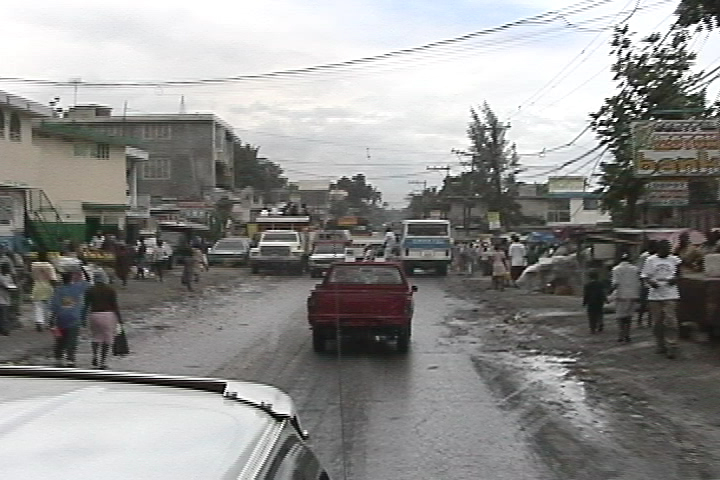 |
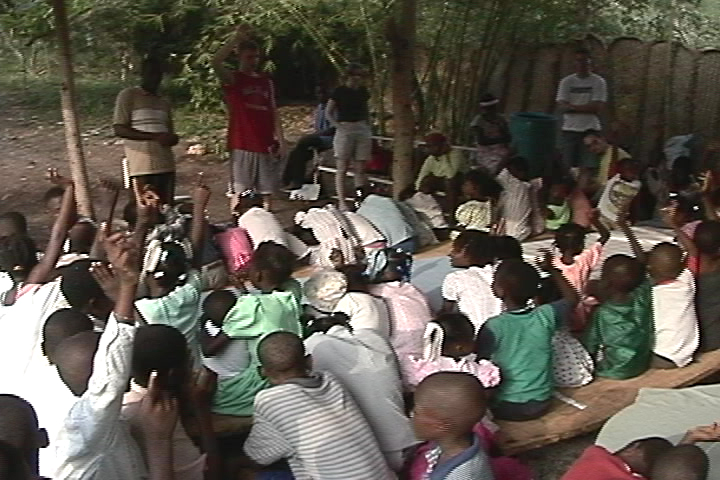 |
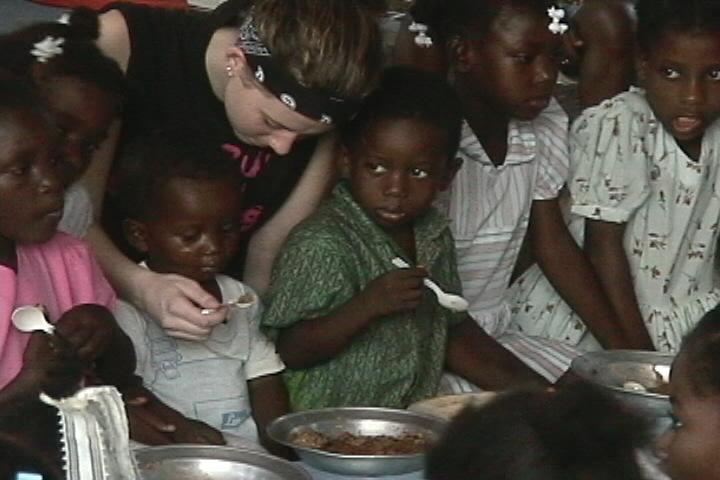 |
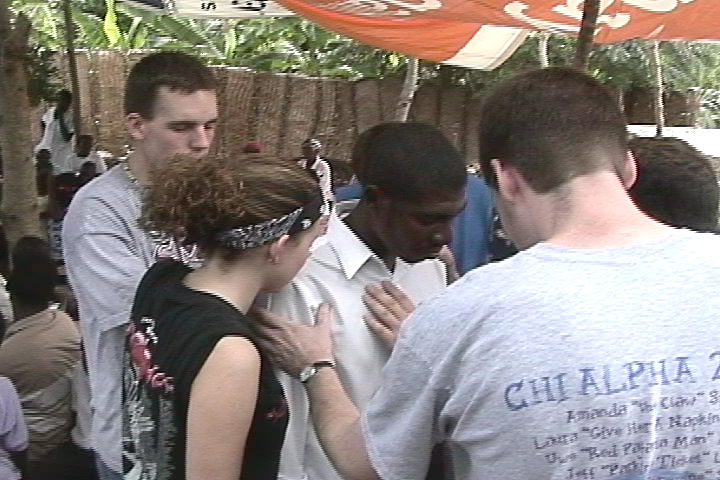 |
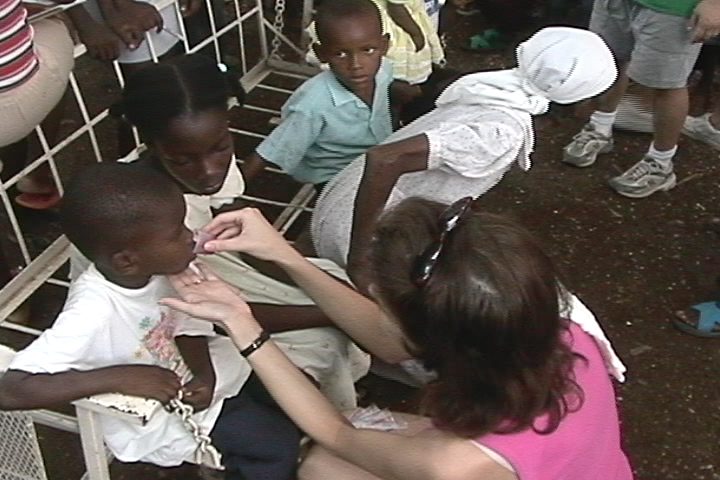 |
 |
 |
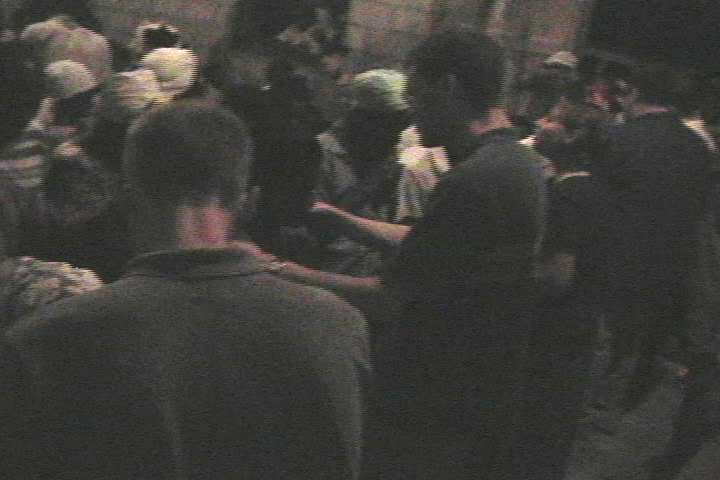 |